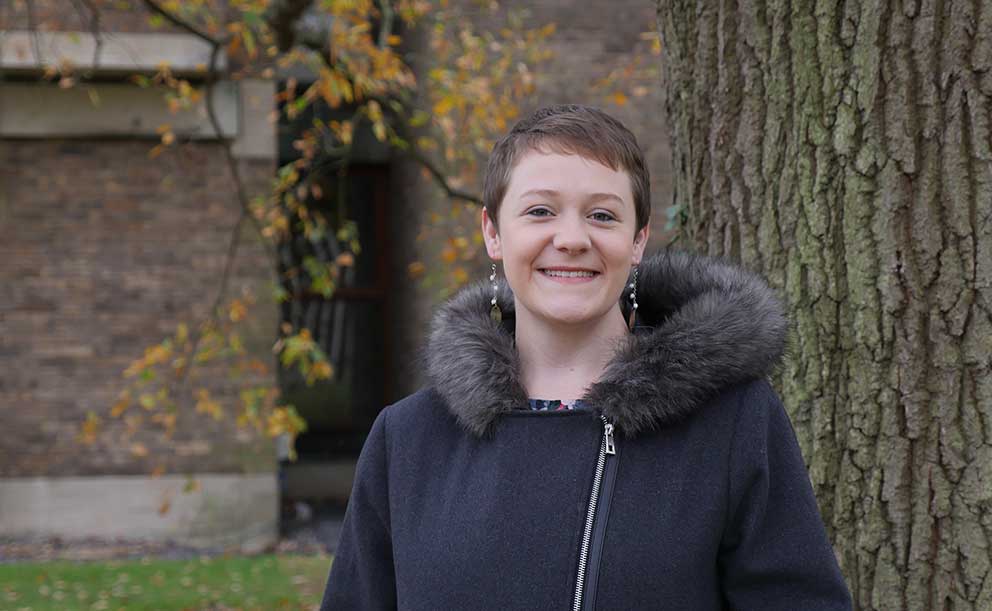
Elre Oldewage (G18) is from Pretoria, South Africa and is currently in the third year of her PhD in the Engineering Department, researching ‘protecting machine learning systems from adversarial attacks’.
An interest in computer science runs in Elre’s family – her grandfather ran a pioneering programming school in South Africa in the eighties – but her school didn’t offer Computer Science as an option. Not to be deterred, Elre discovered she could attend an after-school computing club at a different, much larger High School and made the journey there each week. Having decided she wanted to go into quantum computing she nearly followed the Physics route but her mother advised there were more job prospects in the field of Computer Science. Elre made her way to Pretoria University where she completed her undergraduate studies in Computer Science followed by a research MSc based on Nature-inspired computing.
Computer Science struggles with gender imbalance in South Africa, just as it does elsewhere in the world, including the UK. When Elre started her UG course a quarter of the intake were female but this figure dropped to just 14% by the time she graduated. Her dream was to continue her studies overseas and she was overjoyed when she was awarded the Schlumberger Studentship to take up her PhD studies at Churchill. As an overseas student it would have cost £92,000 to fund three years of her PhD – but the Studentship funding from Schlumberger covers the full cost of Elre’s course fees and maintenance costs, opening the door to postgraduate studies at Cambridge. She lives onsite at the heart of Churchill’s postgraduate community in the Wolfson flats with her partner, who works from home as a programmer. Having now been at the College for several years, she is in no doubt about the incredible opportunity this funding has provided.
Without the Studentship there is no way I would ever have been able to experience the incredible opportunities for learning and development that have been open to me since coming to Churchill and Cambridge. It is particularly mind-boggling that I am regularly able to speak to people at the forefront of the field. For example, I found myself casually talking to someone who was a key figure in the development of fibre-optics at a recent event run by ChuEng, Churchill College’s Engineering Society.
Making the most of all the opportunities available is a recurring theme in Elre’s story. She loves the College community at Churchill and is the current Women’s Welfare Officer for the MCR as well as being Treasurer of the Whiskey appreciation society – she was busy during lockdown organising online tastings! However, discovering and participating in College rowing provided Elre with her most memorable highlight thus far, when she took part in May Bumps 2019. As captain of W2, she loves the ‘incredible sense of community you get with your crew’ and opportunity to get to know a cross-section of students and has really missed this part of her life during lockdown.
Looking ahead to beyond her current studies, Elre hopes to go into industry to apply her knowledge, hopefully somewhere at the forefront of the field such as Microsoft Research or at one of the mushrooming AI start-ups in South Africa. Elre also has aspirations to help combat the serious inequality that exists both in her field and in her country and she would love to work for an NGO to help develop programmes that challenge diversity and open doors.
Diversity is very important. Science shows us that diversity makes teams work better and generate more creative solutions, and so it is critical to give those people an opportunity. Diversity benefits everyone.
Elre is already working with the other women in her research group at CBL (Computational and Biological Learning) to try and combat the massive gender inequality that exists in her field – out of 74 in the group there were only four women last year and seven this year – by helping to set up a support group that will also reach out to women studying at MPhil level.